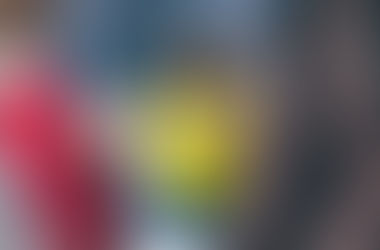Dry Skin? Acne? Damaged? Stressed?
- Jul 12, 2018
- 3 min read

Science is detailing the myriad ways the stress hormone cortisol literally gets under your skin, leading to dryness and other signs of aging. Don't worry and cause more lines, what science reveals it also heals. Once you ID how your inner turmoil shows itself, you can use targeted home an pro therapies to counter its not so pretty effects.
Dry Skin
"Chronic stress increases the hormone cortisol, which damages skin's ability to hold on to water," says Peter Elias, MD, a professor of dermatology at the University of California, San Francisco. The resulting moisture loss also diminishes luminosity, explains David Goldberg, MD, a clinical professor of dermatology and director of laser research at Mount Sinai School of Medicine.
Correct it: Look for hypoallergenic, fragrance-free products. "Their lower pH prevents further dryness and inflammation," says Goldberg. Wash your face with lukewarm water; hot temperatures strip skin's oils. Slathering on your face cream while skin is slightly damp traps moisture.
Fine Lines
Cortisol triggers an elevation in blood sugar, which—via a process called glycation—damages collagen and elastin, the protein fibers that plump skin and keep it smooth. Constant muscle tension also leads to permanent wrinkling.
Correct it: OTC creams made with retinol and antioxidants encourage collagen production to firm skin.
Redness
The increased blood flow that occurs when you're under duress may cause capillaries to expand. Stress also triggers flushing known as rosacea, according to the National Rosacea Society. And because stress weakens your immune system, flare-ups may last longer.
Correct it: When used daily, topical creams made with anti-inflammatories such as allantoin and licorice root extract can ease ruddiness. Rx treatment includes light and laser therapy that zap blood vessels: You'll need several sessions that each cost $300 and up. If you suffer from rosacea, you may need topical prescriptions to reduce inflammation.
Acne
Stress increases the inflammation that leads to breakouts, says Gil Yosipovitch, MD, a clinical professor of dermatology at Wake Forest University.
Correct it: Use a lotion containing skin sloughing salicylic acid or bacteria-busting benzoyl peroxide, plus a noncomedogenic moisturizer so skin won't get too dry. If your skin doesn't respond to treatment within a few weeks, see your doctor for more potent meds.
Tired Eyes
Anxiety causes a chain reaction, leading to sleepless nights, which in turn cause puffiness, says Amy Wechsler, MD, a dermatologist and psychiatrist in New York City and author of The Mind Beauty Connection.
Correct it: Use cucumber slices as mini ice packs for the eyes; they constrict the blood and lymph vessels that bring fluid to the area. Sleep with your head slightly elevated to prevent fluid from pooling.
Here's how to minimize worry-induced flare-ups:
Daily: Work out Exercise 3 or 4 days a week to decrease tension, boost circulation, and keep inflammation in check. "Even a long walk can pump out positive endorphins," says Richard Fried, MD, PhD, a dermatologist and psychologist in Yardley, PA.
Catch Enough Zzzs. Sleeping less than 7 to 8 hours a night not only monkeys with your mood, but causes the body to release cortisol, increasing dryness and inflammation, says Amy Wechsler, MD.
Weekly: Keep a Skin Diary "Write down what's going on in your life when your skin acts up and when it gets better," she says. That helps you zero in on the emotional issue that's triggering your skin problem.
When Desperate: Consider seeing a dermatologist who's also board certified in psychiatry or psychology, known as psychodermatologists. Besides prescribing antibiotics for acne and retinoids for wrinkles, they will recommend alternative techniques such as acupuncture and massage.
Alternatively, if you opt for a more natural remedy, try essential oils. Call me for a free consultation.










































Comments